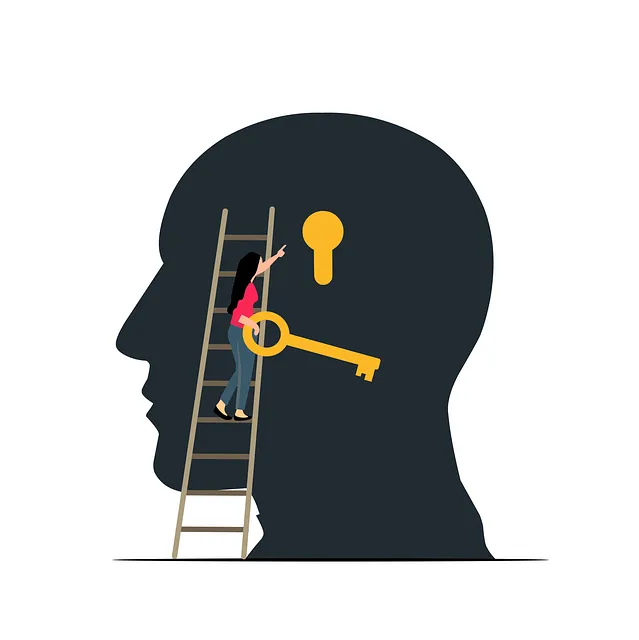Social skills training at the Lone Tree Kaiser Permanente mental health center during visiting hours equips individuals with mental health conditions to navigate social interactions effectively. Through empathy building, crisis intervention techniques, and mental wellness journaling exercises, patients gain tools for emotional regulation, conflict resolution, and deeper connections. This holistic approach enhances well-being, fosters support networks, and empowers individuals to actively participate in their care and shape mental health policies, all within the supportive environment of the Lone Tree Kaiser Permanente mental health center visiting hours.
Social skills training is a powerful tool for individuals navigating mental health conditions, offering a path to improved quality of life. This comprehensive guide explores the intricate relationship between social abilities and mental wellness, highlighting challenges faced by those struggling with their mental health in various social settings.
We delve into the specific role of the Lone Tree Kaiser Permanente mental health center, known for its innovative approach to providing tailored social skills training. Discover effective strategies and techniques, and learn how fostering support systems can revolutionize the lives of individuals seeking better mental health outcomes during their visits to the Lone Tree Kaiser Permanente mental health center.
- Understanding the Impact of Social Skills on Mental Health
- Identifying Challenges in Social Interactions for Individuals with Mental Health Conditions
- The Role of Kaiser Permanente Mental Health Center in Providing Social Skills Training
- Effective Strategies and Techniques for Social Skills Training
- Enhancing Support Systems and Improving Quality of Life Through Social Skills Development
Understanding the Impact of Social Skills on Mental Health

Social skills play a pivotal role in our mental wellness, as they are instrumental in forming connections and navigating relationships. For individuals at the Lone Tree Kaiser Permanente mental health center or similar facilities, understanding and enhancing social skills can significantly contribute to their recovery journey. Effective communication, empathy, and active listening not only foster meaningful interactions but also provide a support system crucial for managing mental health conditions.
By incorporating mind over matter principles and focusing on mental health awareness, individuals can learn to navigate social situations with confidence. This training equips them with the tools to express their feelings, set boundaries, and interpret social cues accurately, thereby improving overall mental health and quality of life.
Identifying Challenges in Social Interactions for Individuals with Mental Health Conditions

Individuals with mental health conditions often face unique challenges when it comes to social interactions. These challenges can be attributed to a variety of factors, including symptoms of their illness, side effects from medication, and stigma associated with mental illness. For instance, someone living with anxiety disorders might struggle with initiating conversations or maintaining eye contact, while individuals dealing with depression may find it hard to express themselves or show interest in others. At the Lone Tree Kaiser Permanente mental health center visiting hours, professionals often emphasize that these social skills are not inherent deficiencies but rather areas where support and training can make a significant difference.
Mental illness stigma reduction efforts play a crucial role in addressing these challenges. By fostering understanding and empathy among peers and community members, individuals with mental health conditions can navigate social situations more comfortably. Emotional healing processes are also integral to improving social skills, as they help individuals manage their symptoms and build confidence. Encouraging positive thinking can further bolster this progress by fostering self-assurance and a sense of belonging.
The Role of Kaiser Permanente Mental Health Center in Providing Social Skills Training

The Lone Tree Kaiser Permanente mental health center plays a pivotal role in offering comprehensive care for individuals navigating various mental health conditions. One of its key contributions is providing social skills training, recognizing the intimate link between social interactions and mental well-being. This innovative approach addresses a crucial aspect often overlooked in traditional therapy.
Through dedicated programs and workshops, the center facilitates learning sessions on conflict resolution techniques and stress management strategies, empowering patients to handle interpersonal challenges effectively. By integrating these skills into daily life, the Lone Tree Kaiser Permanente mental health center supports individuals in managing their moods and enhancing their overall resilience, thereby fostering a supportive environment for holistic recovery.
Effective Strategies and Techniques for Social Skills Training

Social Skills Training is a powerful tool for individuals navigating mental health conditions, offering effective strategies to enhance their interactions and overall well-being. At the Lone Tree Kaiser Permanente mental health center, visiting hours are a prime opportunity for patients to engage in such training. The key lies in practical techniques that foster meaningful connections. One powerful method is empathy building strategies, encouraging individuals to listen actively, understand others’ perspectives, and respond thoughtfully, thereby creating safer social environments.
Additionally, crisis intervention guidance plays a crucial role. Training should equip patients with tools to recognize and manage crises, whether personal or in their interactions with others. This includes teaching de-escalation techniques, assertive communication skills, and strategies for seeking help. Moreover, mental wellness journaling exercise guidance can be beneficial, allowing individuals to reflect on their experiences, track progress, and identify triggers or successes in social interactions, ultimately promoting self-awareness and personal growth.
Enhancing Support Systems and Improving Quality of Life Through Social Skills Development

Social skills training plays a pivotal role in enhancing support systems for individuals managing mental health conditions at Lone Tree Kaiser Permanente mental health center visiting hours or beyond. By developing and refining interpersonal communication, emotional expression, and conflict resolution techniques, patients can navigate social interactions more effectively. This, in turn, fosters deeper connections with family, friends, and communities, significantly contributing to improved quality of life.
Through structured programs and individualized guidance, such as Mental Wellness Journaling Exercise, participants learn to articulate their needs, manage emotions during stressful situations, and resolve conflicts constructively. These acquired skills not only empower individuals in their personal lives but also encourage active participation in the development and advocacy for mental health policies (Mental Health Policy Analysis and Advocacy). By strengthening support systems both internally and externally, social skills training paves the way for holistic mental wellness.
Social skills training plays a pivotal role in enhancing the quality of life for individuals with mental health conditions. By addressing challenges in social interactions, as highlighted by the Lone Tree Kaiser Permanente mental health center’s initiatives, people can develop the confidence to navigate social settings comfortably. Incorporating effective strategies and strengthening support systems can lead to improved mental well-being and better community integration. Visiting hours at the Lone Tree Kaiser Permanente mental health center offer valuable opportunities for individuals to engage in supportive interactions, demonstrating the holistic approach to care that centers like these provide.






